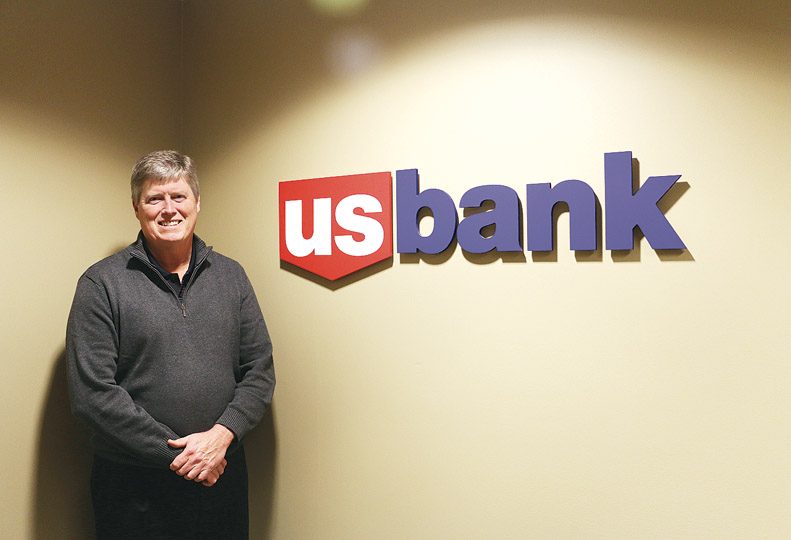
Home » U.S. Bank invests in training its private bankers
U.S. Bank invests in training its private bankers
Educational focus seen as benefit to customers

April 23, 2015
U.S. Bank’s private banking department is providing enhanced educational support for its financial representatives, including here, that it believes will enable them to better serve its larger-balance customers.
“It is a comprehensive strategy within the community banking division of U.S. Bank, and we’re excited to implement it here in Eastern Washington,” says Linda Elkin, U.S. Bank’s regional president for Eastern Washington.
“The goal for us is to enhance our conversational com-petence with our client base,” says Steve Wilcox, a Spokane-based senior vice president and managing director of private banking here for U.S. Bank. “We’re going to continue giving the customers the confidence to want to do business with us.”
Individual development plans have been implemented for the more than 20 financial representatives in the bank’s private client and trust and wealth management groups here, Wilcox says. He said development plans have always been part of U.S. Bank’s culture. However, continuous regulatory changes make it critical for financial analysts and planners to be fully informed.
“The regulatory environment has become much more broad and rigid,” Wilcox says. “More broad—and better defined—than at any point that I’ve seen in my career. We have a responsibility to apply and understand all the changes that have taken place as a result of the crisis of 2008. Accuracy is huge with every client as it pertains to money. We are that facilitator for them.”
The private client group serves customers who have $250,000 or more in qualified banking balances with U.S. Bank, or $100,000 or more in investable assets with U.S. Bancorp Investments.
“We have a great team,” Elkin says. “We effectively integrate trust, asset management, and private banking.”
She says she believes that what sets U.S. Bank apart from other financial institutions when it comes to private banking is the company’s “deep local” presence, which is enhanced by continuous interaction with the community.
While other institutions may have a financial specialist in the agriculture and ranch sectors for their rural client base, such representatives are typically outsourced and are removed from the clients’ immediate location, Elkin contends.
“Our farm and ranch specialist is here, in town, and has had a presence for more than two decades,” she says. “That is a very unique resource.”
U.S. Bank has just started implementing the first of a series of eight development plans for its financial planners. The education component will occur in a classroom setting, via computer training, the creation of a mentorship program, and observation, Wilcox says.
The mission is two-fold: to make the employee more knowledgeable about their job, department and industry. Then help them develop the skills that enhance productivity in their current role or prepare them for advancement.
Elkin and Wilcox declined to discuss the private banking unit’s revenue, or how many customers it serves, but both say it has contributed to clients’ financial wellbeing.
“This is a segment of the market that continues to grow,” Wilcox says.
Maintaining that private-banking services growth is a challenge, which Elkin says is why U.S. Bank believes it is critical to invest in its specialists.
“We need to be able to offer good advice as it relates to sound financial principles,” she says.
Adds Wilcox: “They believe, trust, and count on us in a way that will best meet their needs. We collaborate every day to manage the wealth within our respected portfolios.”
U.S. Bancorp is ranked as the fifth-largest bank in the U.S. In Washington, U.S. Bank operates 184 branches and employs more than 2,400 people.
Latest News Special Report Banking & Finance
Related Articles
Related Products




